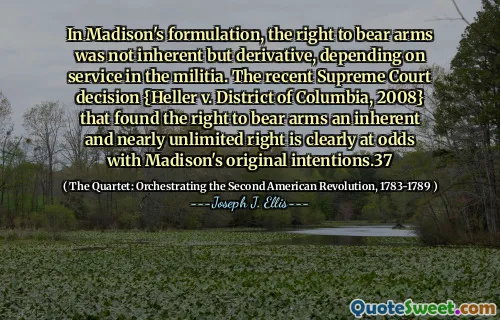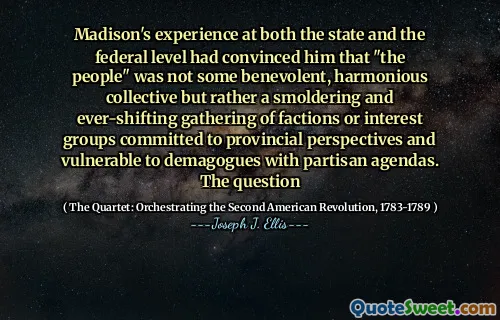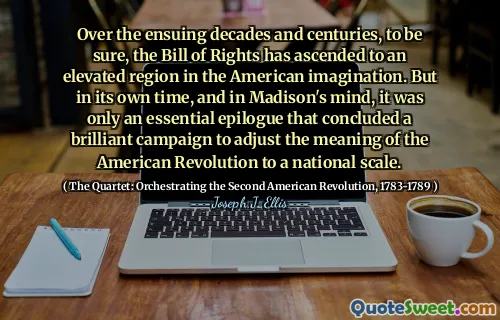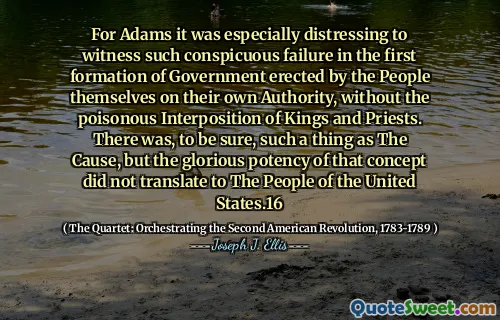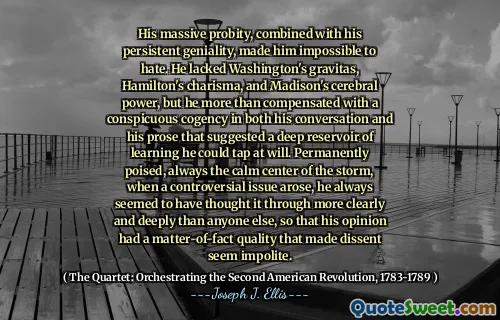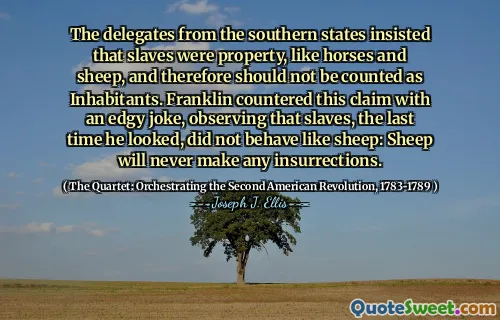"The Quartet: Orchestrating the Second American Revolution, 1783-1789" by Joseph J. Ellis examines the pivotal period in American history when four key figures played instrumental roles in shaping the nation. The book focuses on the lives and contributions of George Washington, Alexander Hamilton, John Jay, and James Madison as they worked to address the weaknesses of the Articles of Confederation and establish a stronger federal government. Their innovative ideas and leadership were crucial in orchestrating a second revolution to unify the young states.
Ellis delves into the relationships and rivalries that existed among these leaders, highlighting how their differing perspectives shaped the debates over governance. He emphasizes the importance of their collaboration, as well as their individual philosophies regarding democracy, federalism, and the role of the government in citizens’ lives. This period was marked by intense political maneuvering as they sought to create a durable framework for the American republic.
The narrative captures the urgency and stakes of the time, illustrating how the quartet's efforts ultimately led to the Constitutional Convention and the drafting of the U.S. Constitution. Ellis portrays their success in rallying support for the new government and the establishment of foundational principles that continue to influence American politics today. By focusing on these figures' strategic orchestration of ideas and policies, Ellis provides a compelling account of a transformative moment in American history.
More »
Today Birthdays
1887 -
Robinson Jeffers
1864 -
George Washington Carver
1936 -
Stephen Ambrose
1953 -
Pat Benatar
1949 -
George Foreman
1945 -
Rod Stewart
1936 -
Robert Woodrow Wilson
1938 -
Donald Knuth
1974 -
Hrithik Roshan
1956 -
Antonio Munoz Molina
1980 -
Sarah Shahi
1936 -
Al Goldstein
1939 -
David Horowitz
1955 -
Michael Schenker
1986 -
Abbey Clancy
1959 -
Chris Van Hollen
1989 -
Emily Meade
